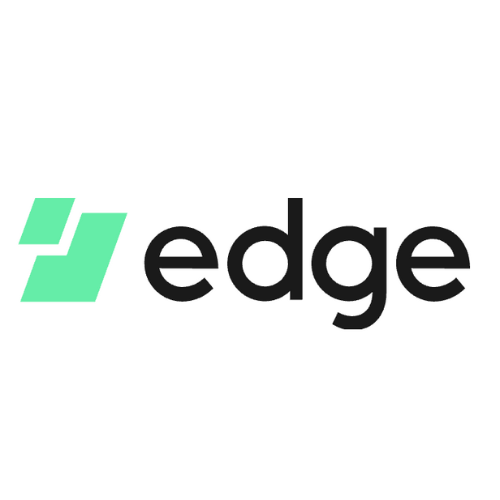.png)
Binance US
Binance.US is a cryptocurrency exchange launched in 2019 to serve customers in the United States, operating as a separate entity from the global Binance platform. Headquartered in Palo Alto, California, it provides a regulated and compliant platform for Americans to buy, sell, and trade a wide variety of digital assets.
The exchange offers a robust suite of products and services for both beginner and experienced traders. Users have access to a selection of over 160 cryptocurrencies, which can be traded with low fees. The platform includes advanced trading features like real-time order books, charting tools, and various order types. In addition to spot trading, Binance.US also offers cryptocurrency staking for a range of proof-of-stake (PoS) assets, allowing users to earn rewards on their holdings. The service is accessible through its website and mobile apps, which are designed to provide a secure and user-friendly experience.
Binance.US is directly connected to the Hedera ecosystem as it lists Hedera's native cryptocurrency, HBAR, for trading. This allows U.S. customers to buy, sell, and hold HBAR, providing essential liquidity and accessibility for the token within the American market.
Project Information
Related Projects

The Coupon Bureau is a non-profit, industry-managed organization established to modernize the coupon industry by creating a centralized data exchange for all stakeholders. The organization's primary mission is to combat coupon fraud, an issue estimated to cost the industry hundreds of millions of dollars annually, while also improving efficiency and the consumer experience.
At the heart of The Coupon Bureau's work is the development and implementation of the new Universal Coupon standard, also known as AI (8112). This new standard replaces the outdated barcode system with a more secure, serialized format for both digital and paper coupons. This allows for real-time validation of every coupon at the point of sale, effectively eliminating counterfeiting and ensuring that each coupon is used only once, as intended by the manufacturer. The platform, known as the Universal Positive Offer File, serves as this central repository for all coupon data, connecting manufacturers, retailers, and consumers in a seamless ecosystem.
The Coupon Bureau utilizes the Hedera Consensus Service (HCS) to create a tamper-proof, auditable log of every coupon's lifecycle. Each time a coupon is created, distributed, or redeemed, a transaction is recorded on the Hedera public ledger.

Circle's USD Coin (USDC), integrated with the Hedera network, offers a regulated, fiat-backed stablecoin pegged to the US dollar. This collaboration allows USDC to be minted natively on Hedera, leveraging the network's fast settlements (around 3-5 seconds), low transaction fees (typically $0.0001 to $0.001, paid in HBAR), and high scalability.
USDC on Hedera provides a trusted, stable, and reliable bridge for decentralized finance (DeFi) applications and end-users on the Circle and Hedera networks. Circle's increasingly popular suite of developer APIs offers full support for USDC on Hedera, facilitating its use in various applications including both payments and micropayments.
With USDC, enterprises and financial institutions have access to cross-platform liquidity and secure cross-border transactions. It’s currently used to facilitate payments and micropayments within applications such as Calaxy, Dropp, and Scintilla as well as to in support of numerous DeFi, NFT projects, and network bridge applications building on Hedera including SaucerSwap and Hashport.

Edge is a US-based non-custodial cryptocurrency wallet provider that was founded in 2014. Its primary product, Edge Wallet, is a multi-asset mobile application that allows users to buy, sell, store, and trade a wide variety of cryptocurrencies.
Key services include in-app cryptocurrency purchases through various third-party providers, crypto-to-crypto swaps, and the ability to purchase gift cards with cryptocurrency. A distinguishing feature of Edge is its "zero-knowledge" security architecture, which means that the company has no access to user funds or data. The wallet uses a simple username and password system for account creation and backup, which is a more familiar experience for mainstream users compared to traditional seed phrases.
Edge has a direct integration with the Hedera network, providing full support for HBAR and other Hedera-based assets. This allows users to securely store and manage their HBAR within the Edge wallet. The integration is seamless, enabling users to easily send, receive, and trade HBAR alongside other major cryptocurrencies.

Attestiv is a digital media validation company founded in 2018 to combat the rising threat of deepfakes and AI-generated content. Headquartered in Utah, the company provides solutions for businesses that rely on the authenticity of photos, videos, and documents, with a primary focus on the insurance, cybersecurity, and financial services industries.
The core of Attestiv's offering is its AI-powered platform that analyzes digital media to detect alterations, tampering, and generative AI content. The platform provides a "tamper score" to indicate the likelihood of manipulation and can identify specific anomalies through a forensic scan. This technology is delivered through a suite of products, including APIs and SDKs that can be integrated into existing workflows, as well as a user-friendly dashboard for manual analysis. Attestiv's solutions are designed to automate fraud detection, streamline processes like insurance claims and underwriting, and protect businesses from the reputational and financial risks associated with fake media.
Attestiv uses a distributed ledger to create a "digital fingerprint" that is recorded on the Hedera blockchain network. This allows for the immutable and verifiable timestamping of each asset, ensuring its authenticity can be validated at any point in the future.
